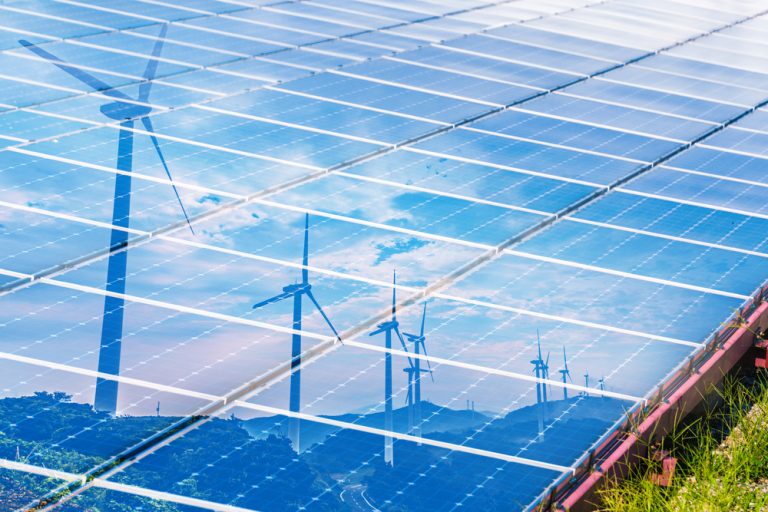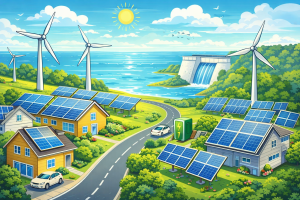Jakarta – The Institute for Essential Services Reform (IESR) issued a stern warning in the Indonesia Energy Transition Outlook (IETO) 2026 released on Thursday, 20 November. In its latest report, IESR assesses that Indonesia could potentially fail to achieve its energy transition if it continues to rely on fossil fuels, despite the government’s stated ambition to achieve 100 per cent renewable energy within the next decade or two.
Instead of showing acceleration, IESR noted that Indonesia’s transition over the past nine years has been stagnant. The target of a 23 per cent renewable energy mix by 2025 is sure to be missed, as it will only reach around 16 per cent by mid-2025. This trend, according to the report, indicates that energy policy remains rooted in fossil fuels, even as the economy continues to grow and the threat of the climate crisis intensifies.
IESR CEO Fabby Tumiwa believes that this situation reflects a recurring paradox. “Indonesia’s energy transition is progressing slowly due to three structural obstacles, namely an incoherent regulatory framework, fiscal policies that incentivise the use of fossil fuels, and institutional and priority fragmentation,” he said. He added that the weak handling of these obstacles has worsened the climate for clean energy investment and hampered the development of low-carbon technologies.
Fabby emphasised that the gap between rhetoric and reality must be closed immediately if Indonesia wants to maintain its credibility in the international community. “The government needs to work extra hard to cut through the barriers to energy transition that continue to persist,” he said. He highlighted the urgent need for institutional reform, the cessation of new coal-fired power plant construction, the retirement of existing coal-fired power plants, and the provision of increased incentives and financing instruments for renewable energy.
Meanwhile, national electricity demand growth of 3–10 per cent per year should open up opportunities for renewable energy to grow faster. However, the reality on the ground shows the opposite. Abraham Octama Halim, an electricity system analyst at IESR, revealed that the share of renewable energy has actually declined over the past five years. “From 13 per cent in 2020, it has fallen to just 11.5 per cent in 2024. This is below the RUPTL target of 15 per cent,” he said.
In fact, Abraham said, IESR simulations in several regions show that PLTS and battery-based systems can reduce electricity generation costs by 3–21 per cent. “We have identified a wide gap between the abundant potential of renewable energy, system planning, and realisation in the field,” he explained.
On the other hand, energy transition readiness indicators also point to a challenging path ahead. In the 2026 Transition Readiness Framework (TRF)—an index designed by IESR to measure the conditions supporting transition—four of the eleven factors are still in the low category, particularly policy, leadership, and investment. This is exacerbated by fossil fuel subsidies, which have actually increased dramatically in the 2022–2026 period, totalling Rp 1,023 trillion.
IESR Financial and Economic Analyst Putra Maswan explained that the lack of regional budget support also hinders energy transition. “The renewable energy budget at the provincial level is only Rp 426.7 billion for 2025 from 33 provinces,” he said. He cited the example of Bali Province, which has 21 GW of solar potential but is only able to meet less than three per cent of its 2025 renewable energy target.
In view of the various obstacles that have emerged, IESR offers six strategic recommendations: establishing a measurable fossil fuel phase-out plan; reforming institutions and regulations; expanding the use of solar and wind energy; promoting low-carbon industrialisation; strengthening clean energy financing; and increasing public participation. (Hartatik)
Banner photo: metamorworks/shutterstock.com















